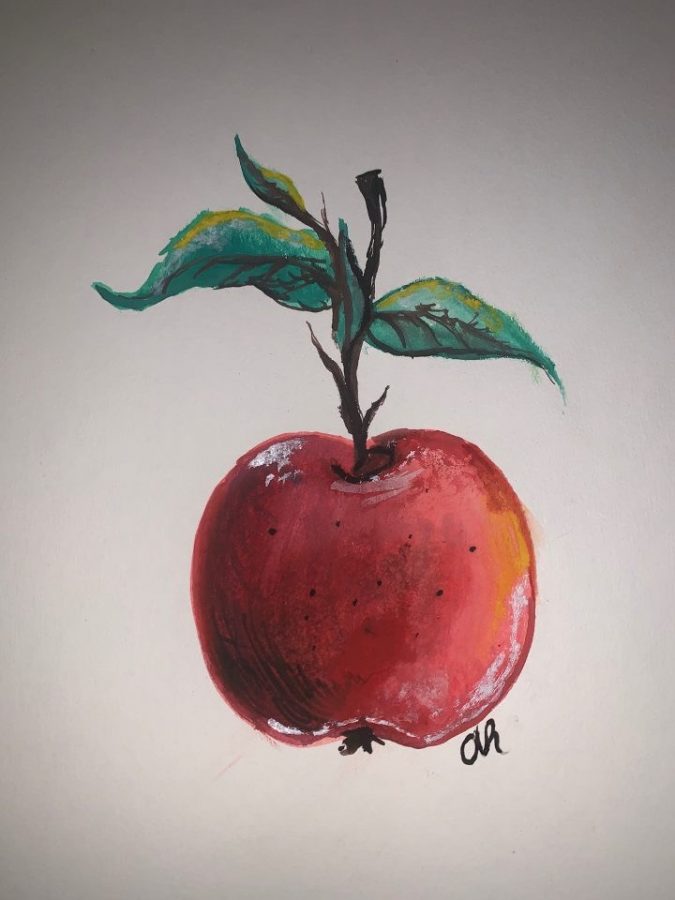Mankind, Meat, and Misconceptions
Meat is a man’s food, right? This is actually one of the most common food misconceptions. For decades, children have been taught that meat is one of the primary food groups; practically every advertisement created by the food and meat industry has spoon-fed this “fact” to society since the dawn of television, and it is considered general knowledge.
The concept that humans are naturally omnivorous originated from studies of the human mouth. Experts believed that our canine teeth are sharp for one reason: to cut meat. However, through studying DNA left behind from our ancestors, scientists have found that meat was not a primary source of food for cavemen, thus proving that these teeth are not necessarily there to eat steak and burgers. The whole “canine tooth equals meat-eater” theory has practically been debunked.
In recent years, the Internet has spawned hundreds of diets, each claiming to hold the cure to some disease or unlock the answers to the universe’s mysteries. Buzz words like vegan, Keto, and Paleo seem intimidating to many, but their short-lived successes seem to become less relevant as time wears on.
New research from Harvard University, the American Heart Association, and other leading scientists supports the theory that a plant-based diet is possibly the most beneficial method to improving heart health, lowering risk of disease, supplying energy, and boosting overall wellness.
Nearly 60% of all Americans die from either cardiovascular disease, cancer, or diabetes, according to the Centers for Disease Control and Prevention (CDC). The Global Burden of Disease Study, the largest study of risk factors for disease, concluded that the number-one cause of premature death and disability in the United States is the standard American diet.
According to Pediatrician Dr. Andria Chizner, “There has been a steady increase in the rate of childhood obesity over the past several decades. This is directly attributable to the American diet; changing the emphasis of your diet from processed food to fruits, vegetables, and whole-grain products can reduce the burden of disease that is directly related to obesity, such as high blood pressure, diabetes, and heart disease.”
Recent research has found a direct association between the consumption of meat and the development of colorectal cancer. Studies are also looking at potential associations with meat and poultry consumption on inflammatory conditions and other cancers such as lymphoma. On the other hand, switching to a plant-based diet can increase blood flow, improve muscle efficiency, and reduce inflammation: the Holy Trinity for athletes.
Some of the most successful and strongest athletes in the world have taken up the plant-based diet in order to see the power that fruits, vegetables, and whole grains can have. Household names such as Venus and Serena Williams, Colin Kaepernick, and Kyrie Irving are among those who have made the switch in their respective diets.
One of the world’s strongest men and record-holding weight lifter Patrick Baboumian has joined the no-meat team. In the Game Changers documentary, Baboumian explained, “Someone asked me, ‘How could you get as strong as an ox without eating any meat?’ My answer was, ‘Have you ever seen an ox eat meat?’”
Additionally, thousands of people are making the switch to a plant-based diet for environmental motives. Twenty seven percent of humanity’s “water footprint” is used to produce animal foods. Domestic farm animals are fed six times more protein on average than they produce. The large sums of animal feed in turn require vast amounts of the world’s freshwater.
Unfortunately, water contamination is another negative side effect of America’s meat-crazed diet. In the United States alone, farm animals are responsible for nearly 50 times more waste per year than humans, in turn polluting rivers, lakes, and groundwater.
Putting the animal-based diet to rest would reduce greenhouse gas emissions by over 70%, saving one million liters of water per person, per year. On a global scale, this would create a brighter future for the world’s most endangered species and the ecosystems. It would also liberate three billion hectares of land, a mass the size of Africa.
In order to see whether or not this food craze is the real deal, I only ate plant-based foods for a week straight. Goodbye meat, goodbye dairy, goodbye every food I ever needed (or so I thought). See you in a week! Don’t miss me too much.
From my seven-day experience as a plant-based eater, I discovered that the myths are true! After just four days, I felt significantly more full between meals and craved less snacks. I also felt more rested and energetic. Although the restrictions were difficult at first, it gradually became easier to take a plate of veggies and grains without the chicken wings and ribs on the side.
If Venus, Serena, Kaep, Kyrie, and I can do it, so can you! Lead a healthier, more environmentally friendly lifestyle by dropping the meat and picking up the plants. For more information on the plant-based diet, visit sites such as Forks Over Knives, Medical News Today, and Healthline.
Plant Based Diet: Food Log
Day One
- Oatmeal with berries
- Homemade guacamole with crackers and carrots
- “Beyond burger” with vegetables and rice
- Mixed fruit
Day Two
- Whole wheat toast with margarine
- Whole wheat everything bagel with margarine
- Mixed fruit, carrots and hummus
- Eggplant meatballs with whole wheat pasta and broccoli
Day Three
- Banana and peanut butter
- Avocado toast and apple slices
- Wheat thins and dried mango
- Tofu and broccoli with brown rice
- Dark chocolate
Day Four
- Banana and peanut butter
- Acai bowl
- Tofu and broccoli
Day Five
- Rice cakes
- Avocado toast and “Mom and Pop” smoothie from Center Health and Nutrition
- Bean tacos
Day Six
- Bagel with margarine
- “Green Ranger” bowl from Center Health and Nutrition
- Miso soup, salad, avocado roll
Day Seven
- Bagel
- Pasta fagioli soup
- Salad

I am the editor-in-chief of the Horizon newspaper and a member of the Class of 2022. I am also the captain of the LHS Speech, Debate, and Model Congress...


































